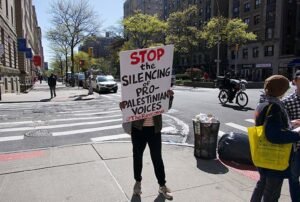
July 2, 2015; Washington Post
During the recession, many states drastically cut their funding of public colleges and university systems. The drop in funding led to increases in tuition, with many people giving up their college dreams and higher debt for those that chose to enroll. As higher education leaders scramble to find funding, some are exploring corporate partnerships. These donations are creating stronger connections between universities and corporations as well as expanding those between corporations and their hometowns.
The Nonprofit Quarterly has discussed the drop in state funding of public colleges and universities in many recent stories. Specifically, the 25 percent drop between 2008 and 2013 led to public university students paying 28 percent more in tuition. With the recession clearing, many state budgets remain in the red. Legislators are unable to renew funding, leading to some states and colleges finding new sources for money. Washington State is one of them.
In the state of Washington, public spending per-pupil is currently 28 percent below pre-recession levels, instigating tuition rate increases of up to 58 percent even after adjusting for inflation. But thanks to a new deal with the state’s largest employer, Microsoft, tuition will decrease by fifteen to twenty percent at public four-year colleges and by five percent at public community colleges and state funding will increase by $200 million. Specifically, the source of 30 percent of this new revenue, or 57 million over the next two years, will be generated by a new sales tax on some of Microsoft’s equipment purchases.
Microsoft started the conversation in March. At that time, its general counsel, Brad Smith, was quoted by the Seattle Times saying that the company would be “comfortable” paying higher taxes, particularly if they benefited civic causes.
Sign up for our free newsletters
Subscribe to NPQ's newsletters to have our top stories delivered directly to your inbox.
By signing up, you agree to our privacy policy and terms of use, and to receive messages from NPQ and our partners.
Overall spending for higher education has remained critically low in a majority of states, often due to large state budget deficits. Only ten states have increased tuition funding since the end of the recession. The largest increase was in the state of New Hampshire, where per-pupil state funding increased by 28.5 percent. In thirty other states, public funding plummeted. The largest drop was in Arizona, and it led to an increase in tuition of over 83 percent and a decrease in the educational opportunities offered students.
Without these essential state funds, colleges and universities are raising tuition and fees at an alarming rate. Sometimes students, caught by surprise by the fees, argue these increases represent a change of institutional behavior. Students and other nonprofits in a number of locales are advocating for colleges and universities to be held accountable to their students and the general communities where they are located.
The Roosevelt Institute’s Rethinking Communities Initiative is partnering with college students at several institutions to advance policies and models promoting economic progress throughout the community. The movement believes university systems are an anchor for and have a mission to strengthen the community. Students explore sources of inequality and develop strategies and coalitions to advance policies leading to greater growth and prosperity. They also work together to hold higher educational institutions accountable to the communities they are located in.
The initiative sees colleges and universities as more than a place of employment—rather, as a place of exchange among students, alumni, professors, trustees, and neighbors. The goal is to demand that institutions invest locally throughout the community to create community wealth, strong employment opportunities, and vibrant communities inside and outside of the school’s campus.
Students are also exploring purchasing habits, investment strategies, and financing policies to highlight opportunities to strengthen local communities as well as benefit the institution. For example, at Michigan State, students are identifying local companies that can provide supplies throughout the campus. At New York University, coalition members are exploring opportunities to decrease the number of people without a bank account, another factor limiting individuals and families’ ability to exit poverty. Once these policies are instituted, they often have a cost neutral effect on the university budget but have multiple beneficial effects for their students and the community they live in.—Gayle Nelson












